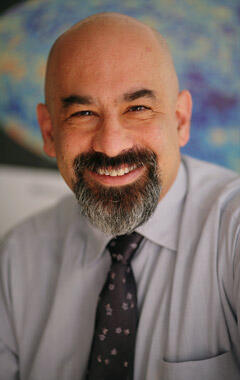Tiger of the Week: David Spergel '82

In 2003, David Spergel ’82 and his colleagues from the Wilkinson Microwave Anistropy Probe (WMAP) experiment published several findings, including the age of the universe — 13.7 billion years. Soon after, Discovery Magazine asked the Princeton professor whether, at the beginning of his career, he would have thought it possible to provide such answers about the history of the universe. “Never,” he said. “Not with this kind of precision. When I entered the field, cosmology was a very speculative discipline. Now it is a real, experimental science. We can make predictions about the properties of the universe and then go out and test our predictions. And the accuracy of the experiments is improving by orders of magnitude.”
Last week, the Hong Kong-based Shaw Prize Committee rewarded that innovative and often-cited work from 2003 — and other studies that followed — by awarding its annual $1 million astronomy prize to Spergel ’82, Princeton colleague Lyman Page Jr., and WMAP collaborator Charles L. Bennett, a professor of physics and astronomy at Johns Hopkins. WMAP, named for the late Princeton physicist David Wilkinson, “has enabled precise determinations of the fundamental cosmological parameters, including the geometry, age, and composition of the universe,” according to the Shaw Prize commendation. The Shaw Prizes, first awarded in 2004, have been nicknamed the “Asian Nobels.”
Spergel, chairman of Princeton’s department of astrophysical sciences, earned his bachelor’s degree in astrophysics and completed his Ph.D. studies at Harvard in 1985. He joined the Princeton faculty in 1987 and earned a MacArthur fellowship in 2001.












No responses yet